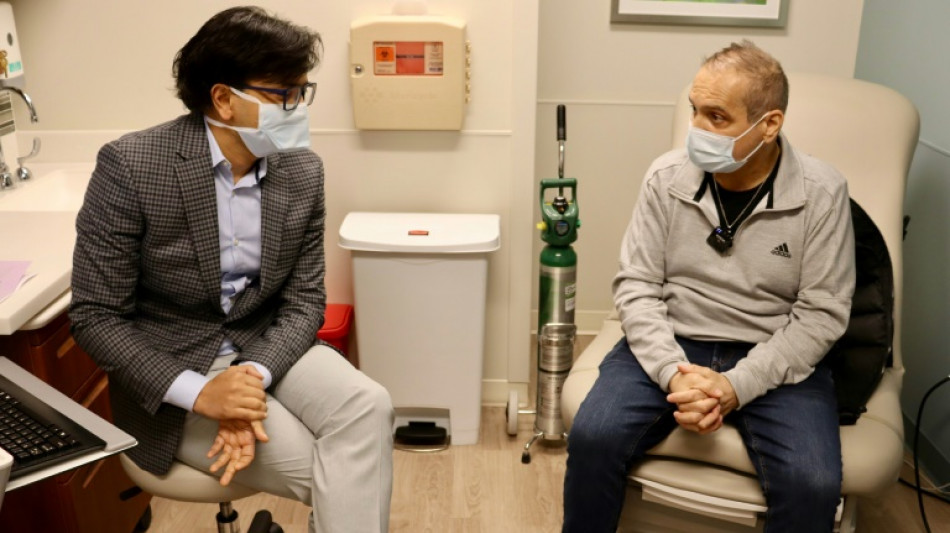
-
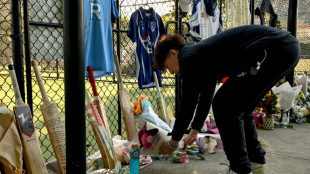 Tributes as death of Australian teenager touches cricket world
Tributes as death of Australian teenager touches cricket world
-
Jackson throws four TD passes as Ravens rout Dolphins

-
 NBA champs Thunder roll past Wizards, Bucks and Spurs win
NBA champs Thunder roll past Wizards, Bucks and Spurs win
-
UK's Andrew in freefall, stripped of queen's protection
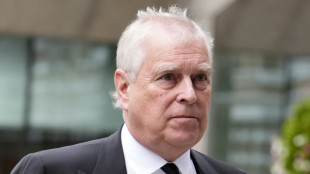
-
 Real Madrid and Barcelona aim to shake off Clasico consequences
Real Madrid and Barcelona aim to shake off Clasico consequences
-
Ambitious Paris FC making steady progress after landing in big time

-
 Rebuilt Leverkusen hope to reignite Bundesliga rivalry at Bayern
Rebuilt Leverkusen hope to reignite Bundesliga rivalry at Bayern
-
Xi primed to meet Japan, Canada leaders after Trump summit
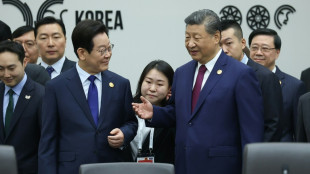
-
 Australia coach Schmidt pleads for Edmed patience ahead of England clash
Australia coach Schmidt pleads for Edmed patience ahead of England clash
-
Liverpool feel pressure to end 'crisis' run, Man City test Bournemouth limits
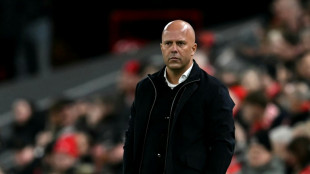
-
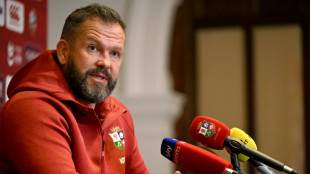 Farrell eyes 'reset' as Ireland-All Blacks ready for 'Battle of Chicago'
Farrell eyes 'reset' as Ireland-All Blacks ready for 'Battle of Chicago'
-
Asia markets mostly up on heels of Apple, Amazon earnings

-
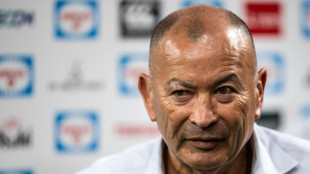 Jones wants Japan to enhance 2015 legacy against South Africa
Jones wants Japan to enhance 2015 legacy against South Africa
-
Growing rice in the UK 'not so crazy' as climate warms
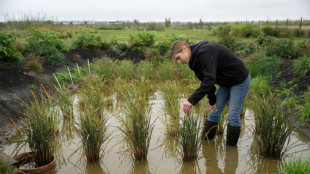
-
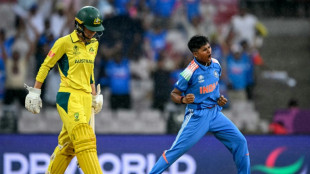 Australia say 'let ourselves down' after India end world domination
Australia say 'let ourselves down' after India end world domination
-
AI cannot make cinema, director Linklater says

-
 After delays, Egypt set for lavish opening of grand museum
After delays, Egypt set for lavish opening of grand museum
-
What we know about the downfall of Andrew, born a UK prince

-
 Desperate Dodgers mull using Ohtani as relief pitcher
Desperate Dodgers mull using Ohtani as relief pitcher
-
Blue Jays vie to close out sputtering Dodgers in World Series

-
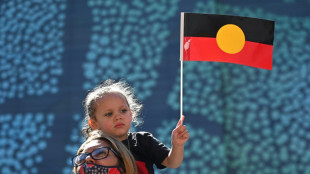 Indigenous Australians celebrate historic state treaty
Indigenous Australians celebrate historic state treaty
-
Caught between Venezuela and US, Trinidad fishermen fear the sea
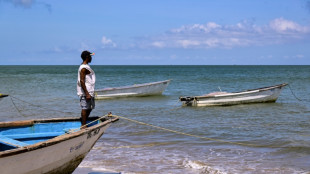
-
 Latest NFL Chiefs-Bills duel has both chasing division leaders
Latest NFL Chiefs-Bills duel has both chasing division leaders
-
Sierra Leone chases rare repeat in Breeders' Cup Classic

-
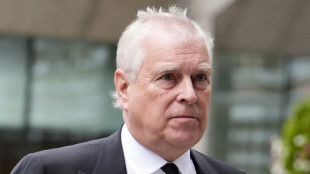 King Charles strips Andrew of royal titles, Windsor home
King Charles strips Andrew of royal titles, Windsor home
-
Sales of 'services' help Apple beat earnings forecasts

-
 Beyond words: '67' crowned 'Word of the Year'
Beyond words: '67' crowned 'Word of the Year'
-
Amazon shares surge as AI boom drives cloud growth

-
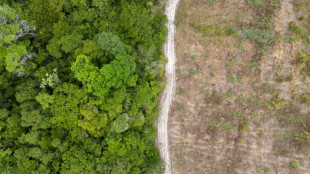 Brazil boasts drop in deforestation ahead of UN climate talks
Brazil boasts drop in deforestation ahead of UN climate talks
-
Russians marking Stalin's repression warn against return to past
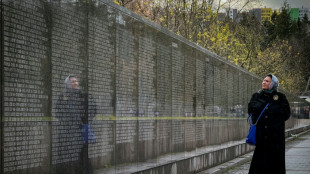
-
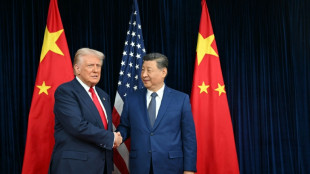 Stocks mostly fall as investors digest Trump-Xi talks, earnings
Stocks mostly fall as investors digest Trump-Xi talks, earnings
-
Turkey says Pakistan-Afghanistan talks to resume

-
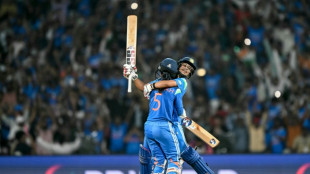 Record-breaking India upset Australia to reach World Cup final
Record-breaking India upset Australia to reach World Cup final
-
US to limit refugees to record low 7,500, mostly white South Africans

-
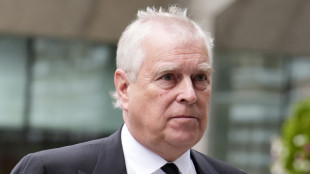 King Charles to strip Andrew of royal titles, residence: palace
King Charles to strip Andrew of royal titles, residence: palace
-
Sinner marches into Paris Masters quarters, Bublik downs Fritz

-
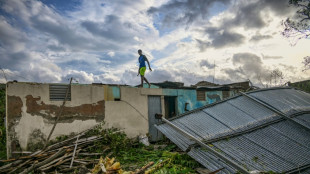 Devastated Caribbean assesses damage as hurricane eyes Bermuda
Devastated Caribbean assesses damage as hurricane eyes Bermuda
-
Trump stirs tensions with surprise nuclear test order
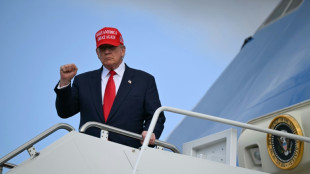
-
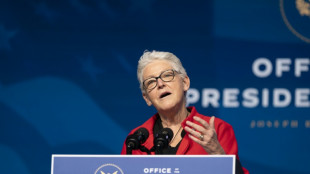 100 US local leaders will attend COP30 in 'show of force'
100 US local leaders will attend COP30 in 'show of force'
-
UN warns of 'atrocities,' 'horror' in Sudan as RSF advances
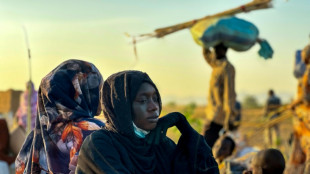
-
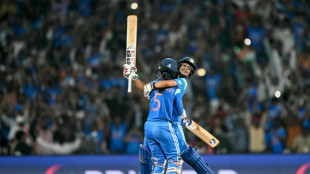 Rodrigues hits ton as India stun Australia to reach Women's World Cup final
Rodrigues hits ton as India stun Australia to reach Women's World Cup final
-
Trump's order on nuclear testing: what we know
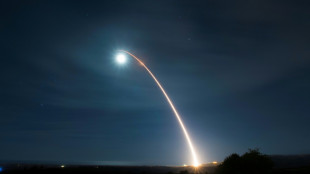
-
 Spalletti returns to football with Juventus after Italy flop
Spalletti returns to football with Juventus after Italy flop
-
Rodrigues hits ton as India chase 339 to stun Australia in World Cup semis
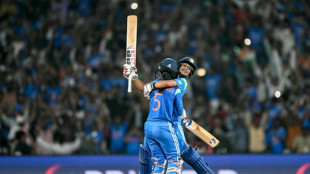
-
 Saudi chases AI ambitions with homegrown firm pitched to global investors
Saudi chases AI ambitions with homegrown firm pitched to global investors
-
Russia batters Ukraine energy sites with deadly aerial strikes
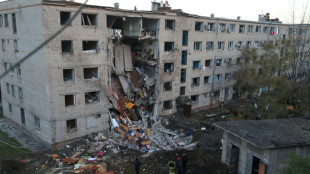
-
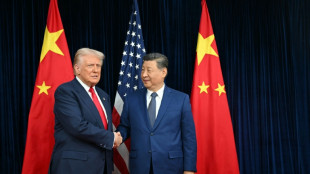 Stocks diverge as investors digest Trump-Xi talks, earnings
Stocks diverge as investors digest Trump-Xi talks, earnings
-
'Better to go to prison': Israeli ultra-Orthodox rally against army service
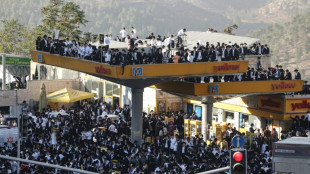
-
 Bublik downs fourth seed Fritz to reach Paris Masters quarters
Bublik downs fourth seed Fritz to reach Paris Masters quarters
-
UN climate fund posts record year as chief defends loans
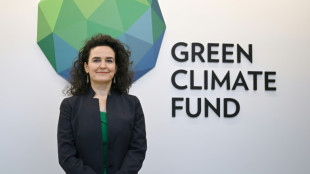

Double lung transplant saves US man with terminal cancer
US doctors announced Thursday they had successfully performed a double lung transplant on a patient with terminal lung cancer, giving new hope to others who also have advanced stages of the deadly disease.
Albert Khoury, a 54-year-old non-smoker, underwent a seven-hour surgery to receive his new lungs at Northwestern Medicine in Chicago on September 25, 2021.
Six months on, the lungs are working well and he has no signs of cancer in his body.
"Lung transplantation for lung cancer is extremely uncommon with few cases reported," Ankit Bharat, chief of thoracic surgery at Northwestern Medicine, said in a statement.
"For patients with stage 4 cancer, lung transplantation is considered a complete 'no-no,' but because Albert's cancer was confined only to his chest, we were confident we could clear all the cancer during surgery and save his life."
Surgeons are generally reluctant to proceed with such transplants because if there are even a few cancerous cells remaining, there is a strong chance they will regrow in a patient taking immune-suppressing medications to prevent organ rejection.
The few such procedures in the past have not been successful, but since then, advances have allowed doctors to better understand cancer's spread.
In early 2020, Khoury was working as a cement finisher for the city of Chicago, when he began to experience back pain, sneezing, chills, cough and mucus. At first he assumed it was Covid, but called his doctor when he coughed up blood.
"They discovered stage 1 lung cancer, but due to the Covid-19 surge, I couldn't begin treatment right away," he said in a statement.
By July 2020, his cancer progressed to stage 2, and, despite several rounds of chemotherapy, kept growing to stage 3 and stage 4.
He was told there was no chance of survival, but his sister told him about the pioneering lung transplants at Northwestern.
- 'Can't stop smiling' -
In 2020, Bharat led a team that performed the first double lung transplant on a woman in her twenties whose lungs had been decimated by Covid.
Khoury came under the care of oncologist Young Chae at Northwestern who wanted first to try other cancer-fighting treatments -- but his health kept declining, leaving him in an intensive care unit with pneumonia and sepsis.
It was determined that he was in fact a candidate for transplant since the cancer, despite being stage 4, had not spread to other organs, and he received his new lungs after a two-week wait.
The team had to remove "trillions" of cancer cells all over his lungs within a six hour time frame, all the while taking care not to spill material into his chest cavity or blood stream.
"It was an exciting night," said Bharat.
Khoury is now leading a normal life, and is able to work and go to the gym, without requiring breathing support.
"My life went from zero to 100 because of Northwestern Medicine," he said.
"You didn't see this smile on my face for over a year, but now I can't stop smiling."
Based on the success, Bharat and Chae are developing a new set of protocols to determine who else might be eligible for such treatment.
Lung cancer is by far the leading cause of cancer-related deaths in the United States making up almost 25 percent of all cancer mortalities.
L.Janezki--BTB




